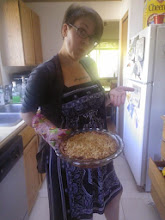Dear Mr. President,
Omar Khadr pled guilty today. I understand that this plea bargain is his best hope for getting out of Guantanamo Bay and going back home to Canada, but it is still heartbreaking to think about the punishment he will face. You know Khadr's story. I do not need to tell you that he was 15, just three years older than Malia, when he threw a grenade that killed a US soldier. I do not need to tell you that he acted as instructed by his father and the other adults in his life. I do not need to tell you that he was seriously wounded, detained, tortured, and threatened with rape to compel his confession. I don't think I would need to see so many parallels between my own life and Khadr's to be horrified at the way my country has treated him, but while reading about his case I could not help but notice something about the day he was captured.
On July 27th as the 15-year old Khadr was shot, blinded in one eye, and taken in to US custody, I was in a cemetery. Right around noon, before it was late enough to really be called hot, a pickup truck came to a stop on the path near the grave I sat beside. A man I had never seen before got out, and walked over to where I sat. In one hand he had a small handful of vegetables from his garden, I think that they were radishes. He laid them at the gravestone and mumbled something to me about how they had been his nephew's favorite. His nephew, dead more than six months, would have been seventeen that day. I remember there was no accusation in his voice, only sadness. Looking back, I am sure he felt as responsible as I did that Josh would not be celebrating that day, that those of us in his life who were supposed to care for him had failed. I could not, in my own grief, conceive of what was then happening in Ayub Kheyl, Afghanistan.
Omar and I are both 24 now. While the last eight years of his life have been the stuff of nightmares, mine has been fairly average. Perhaps it is our age that makes me wonder so intensely at the very different courses our lives have taken, or the lingering idea that we are both, to varying degrees, responsible for the loss of a life. But I cannot imagine the darkness of his existence, the suffering, the confusion, the fear. I can't begin to put myself in his place. I am no stranger to the harsh reality that there are many my age who are suffering, who have led difficult lives and who will face obstacles and tragedies that I am exempt from because I was born in a place of relative privilege. Is it childlike, then, to wish that Omar had gotten to graduate high school, go to college, to have all of the opportunities I have? To fear that, if he is to spend the rest of his life suffering in payment for his worst mistakes as a fifteen year old child, then I must, as well?
If it is my empathy that disinclines me to believe the charges against Khadr are valid even after he confesses to them, I can accept that. Even if I am entirely wrong, even if Khadr is guilty of every single crime for which he has been accused, I still do not believe that he has been treated fairly or in a manner worthy of the American justice system. While I have no shortage of sympathy and compassion for the soldiers injured by Khadr or the family of the soldier killed, I do not believe that their suffering is eased, or that others like them are made safer, by the harsh treatment suffered by the child responsible. I think we are all just a little guiltier today as we stand by and allow atrocities like this one to continue in our name.
Respectfully yours,
Kelsey
Subscribe to:
Post Comments (Atom)




No comments:
Post a Comment